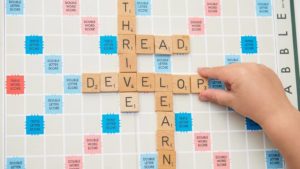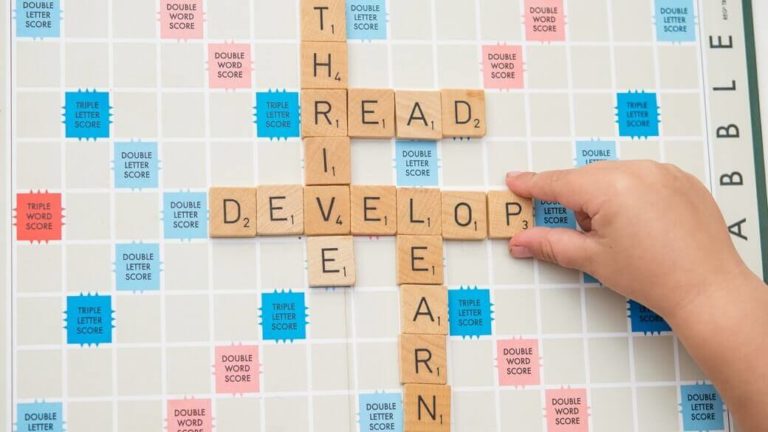The 7 Plus composition and comprehension papers will test vocab and grammar. In this blog, Cecilia suggests some fun and engaging activities that will help to develop your child's vocab and get them ready to sit the school entrance exam.
Reading and conversation are of course both excellent ways to develop your child’s understanding and use of the more complex language needed to do well in school entrance exams.
However, the vocabulary requirements of entrance exams are demanding, and more overt teaching is sometimes necessary. Children not only need to be able to understand the meaning, but sometimes must also explain why a writer has chosen a particular word, or use their understanding of the word to explain a character or atmosphere in a text.
Tutors can certainly help with this but to really make sure new words stay with the child, they should be practiced and used regularly. There are ways of accelerating children’s understanding and use of more complex words through activities which are easy to do at home, and can involve all the family. These activities will not only get your children learning new words, but also really thinking about why a word might have been used. They will also help your child choose more varied and precise words in their own writing, something which prospective schools will certainly value when it comes to 7 Plus or 8 Plus exams.
Activity 1: Ranking ‘levels’ of words
Using an online thesaurus, write down ten difficult ‘noise’ words onto cards – for example, ‘clamour, tumult, pandemonium, uproar, muffled, faint, indistinct, inaudible, peaceful, hushed, muted’. Discuss them and together, rank them in a line, from the noisiest to quietest. Talk about each word and start your children on really considering why one word might be used instead of another. Each of you can then create a sentence using the word. Put the words on the wall and try to use them every evening that week. Remember, on average, a child has to hear and use a new word around 6-10 times to remember it.
Activity 2: Matching Latin based words with their Old English counterparts
Many of the more academic words we use come from Latin or Greek, but have a simpler version which we use in social English. Examples are request – ask, commence – begin, imbibe – drink. Lists of these words are easy to find online. Using two different colours of card, write the ‘academic’ words on one and the ‘social’ words on the other. Play speed match – your children will use deduction to pair together as many as possible, and you can discuss any they didn’t know to make a wall display. Give a point to any child who uses a new word correctly during the following few weeks!
Activity 3: Ranking describing words
Give your child 16 words which mean different forms of good, using a thesaurus to find some familiar and some harder words. Ask your child which word they would like to be described as if they were being written about in a cricket review or an article about their guitar playing! Get them to tell you why they chose that word. Then, create a diamond with your children of words for ‘good’ – the most powerful ‘good’ at the top, the ‘Meh, it’s ok I suppose!’ good words at the bottom. The middle sections can be 2 words, 3 words, 4 words, 3 words and 2 words, making a diamond. This helps them to consider why a word has been chosen as well as to fully understand the meaning of that word. Once you have done this with ‘good’ words, try it with ‘brave’ words, ‘bad’ words, and ‘angry’ words and so on.
Activity 4: Categorizing words
Find and copy onto cards 12 or so words which describe different types of light, such as shimmering, twinkling, blinding, glaring, blazing, rippling, burning and pearlescent. Write a set of categories for the words such as ‘light which appears to be moving’, ‘light which sounds luxurious’, and ‘light which sounds painful’, ‘light which is described like fire’. Ask your children to categorise the words, and explain why they have chosen each category; you will need to explain the new words to them so they can choose which group to put them in. Display the words and purposefully use them until they are learnt. You can do the same activity with other word groups, for example debate words such as concede, counter-argue, maintain, demand, propose, counter and rant! The categories might be ‘Debate word which means putting a new argument forward’, ‘Debate word which means you give way a bit and agree to someone else’s point of view’ or ‘Debate word which means you stick to your point of view and reiterate it.’
Activity 5: Walking and talking words
Scatter a number of walking and talking words across the table, such as ‘stormed’, ‘paced’, ‘ambled’, ‘limped’, ‘sauntered’ and ‘whispered’; ‘exclaimed’, ‘stated’, ‘retorted’, murmured’ and ‘grunted’. Talk about the words and explain any which are new. Then give each child a sentence with the walking or talking verb missing, and ask them to pick the most suitable word to fill the gap. For example, ‘How DARE you eat my bananas!’ __________ the furious elephant as he ___________ into the room looking very, very cross!’ Obviously mumbled and ambled wouldn’t be the right words but there will be a few on the table which will fit well.
Have fun with words; they are wonderful things – and some of the best tools you can give your children!
Related subjects
Our tutors are rated 4.9 / 5 based on 1116 reviews.



Start the discussion!